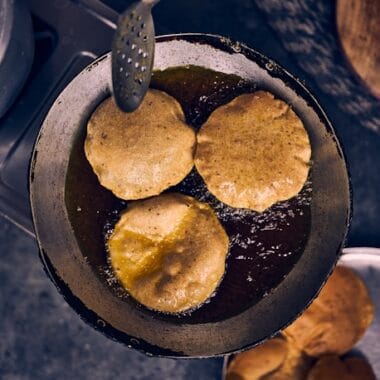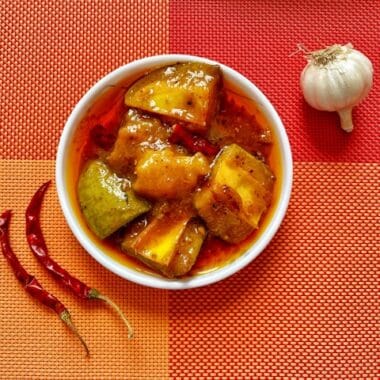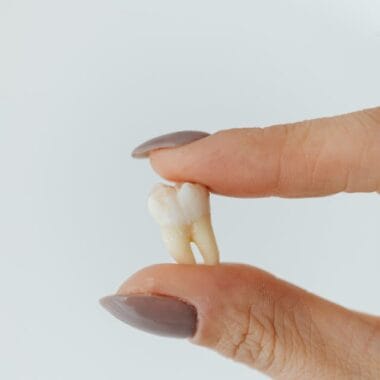India has a rich tradition of extracting oils from seeds and nuts using age-old methods that preserve the natural goodness and flavours of the raw materials. These traditional processes, often passed down through generations, involve mechanical extraction without the use of high heat or chemicals, ensuring that the oils retain their nutritional value and health benefits. In this comprehensive blog, we explore the various traditional methods used across India to extract cold pressed oils, the types of oils produced, and their cultural significance.
Introduction to Traditional Cold Pressed Oil Extraction
Traditional methods of cold pressed oil extraction in India are deeply rooted in local agricultural practices and culinary traditions. These methods prioritize sustainability, purity, and health benefits, making them highly valued in both rural and urban settings. The key characteristics of traditional cold pressed oil extraction include:
- Mechanical Extraction: Seeds or nuts are crushed or ground using mechanical methods to release the oil. This can involve hand-operated tools or traditional wooden presses.
- Low Temperature: The extraction process is conducted at temperatures below 35°C (95°F) to prevent damage to the oil’s natural nutrients and flavours.
- No Chemicals: Traditional methods avoid the use of chemical solvents or additives, ensuring a pure and natural product.
- Cultural Heritage: Many traditional oil extraction methods in India are tied to cultural practices, festivals, and rituals, reflecting the significance of oils in local cuisines and daily life.
Types of Traditional Oil Extraction Methods in India
India boasts a diverse range of traditional methods for extracting cold pressed oils, each tailored to specific seeds, nuts, and regional preferences. Here are some prominent methods used across different parts of the country:
1. Ghani or Kolhu
Region: Throughout India, particularly in rural areas
Description: Ghani or Kolhu refers to a traditional wooden or stone oil press used extensively across India for extracting oils from seeds such as sesame, mustard, groundnut, and sunflower. The process involves the following steps:
- Preparation: Seeds or nuts are cleaned and dried thoroughly to remove moisture, ensuring better oil extraction.
- Grinding: The dried seeds are fed into a manually operated stone or wooden grinder, where they are crushed into a coarse paste.
- Pressing: The ground paste is then transferred to a cylindrical wooden or stone press, known as a ghani or kolhu. A wooden pestle or screw is used to apply pressure, squeezing out the oil from the paste.
- Filtration: The extracted oil is filtered through natural materials like muslin cloth or plant fibers to remove any solid particles or impurities.
- Storage: The filtered oil is stored in clay or wooden containers to preserve its freshness and flavour.
Benefits: Ghani or Kolhu extraction maintains the natural aroma, flavour, and nutritional properties of the oil, making it suitable for culinary and medicinal uses. It is valued for its purity and the absence of heat or chemicals in the extraction process.
2. Chekku or Marachekku
Region: Tamil Nadu, Kerala, and parts of Karnataka
Description: Chekku or Marachekku (meaning wooden press) is a traditional oil extraction method prevalent in South India, especially for oils like coconut, sesame, and groundnut. The process involves:
- Preparation: Seeds or nuts are cleaned and sun-dried to reduce moisture content.
- Grinding: The dried seeds are crushed using a wooden or stone mortar and pestle to obtain a coarse paste.
- Pressing: The ground paste is then placed in a cylindrical wooden or stone press (chekku), where a wooden pestle or screw applies pressure to extract the oil. The pressure is carefully controlled to ensure the temperature remains low.
- Filtration: The extracted oil is filtered through muslin cloth or natural filters to remove any solids.
- Storage: The filtered oil is stored in clay pots or glass bottles away from direct sunlight to maintain its quality.
Benefits: Chekku extraction preserves the natural flavour, aroma, and nutritional benefits of the oil. It is known for its purity and suitability for cooking, skincare, and traditional medicinal practices.
3. Kachi Ghani
Region: Rajasthan and parts of North India
Description: Kachi Ghani, meaning raw or cold pressed, is a traditional method used primarily for mustard oil extraction. The process involves:
- Preparation: Mustard seeds are cleaned and dried thoroughly to remove moisture.
- Grinding: The dried seeds are crushed or ground using a stone or wooden grinder to create a coarse paste.
- Pressing: The ground mustard paste is transferred to a wooden or stone press, where it undergoes cold pressing. A wooden pestle or screw applies pressure to extract the oil without heating the paste.
- Filtration: The extracted oil is filtered through muslin cloth or natural filters to remove impurities.
- Storage: The filtered mustard oil is stored in clay pots or glass bottles in a cool, dark place to preserve its pungent flavour and nutritional properties.
Benefits: Kachi Ghani extraction retains the natural pungency, antioxidants, and health benefits of mustard oil. It is prized for its distinct flavour and culinary versatility in Indian cuisine.
4. Vaghai Marachekku
Region: Gujarat
Description: Vaghai Marachekku is a traditional oil extraction method used in Gujarat, primarily for oils like groundnut and sesame. The process includes:
- Preparation: Seeds are cleaned and dried thoroughly under the sun.
- Grinding: Dried seeds are crushed using a stone or wooden mortar and pestle to create a coarse paste.
- Pressing: The ground paste is placed in a cylindrical wooden or stone press (marachekku), where pressure is applied manually using a wooden pestle or screw. This gentle pressing method ensures the oil remains cold pressed.
- Filtration: The extracted oil is filtered through muslin cloth or natural filters to remove any solids or impurities.
- Storage: The filtered oil is stored in clay or glass containers away from sunlight to maintain its freshness and nutritional value.
Benefits: Vaghai Marachekku extraction preserves the natural flavour, aroma, and nutritional benefits of the oil, making it ideal for cooking, skincare, and traditional medicine in Gujarat.
5. Wood Pressing
Region: Himachal Pradesh, Uttarakhand, and other hilly regions
Description: In hilly regions of India, especially in Himachal Pradesh and Uttarakhand, traditional wooden presses are used for cold pressing oils like apricot kernel oil and walnut oil. The process involves:
- Preparation: Seeds or nuts are cleaned and dried thoroughly in the mountain air to reduce moisture content.
- Grinding: Dried seeds or nuts are crushed using wooden tools or stone grinders to create a coarse paste.
- Pressing: The ground paste is placed in a wooden press, where pressure is applied manually to extract the oil. The pressing process is gentle to maintain low temperatures.
- Filtration: The extracted oil is filtered using natural materials like muslin cloth or plant fibers to remove any solids.
- Storage: The filtered oil is stored in wooden containers or glass bottles in a cool, dry place to preserve its natural properties.
Benefits: Wood pressing ensures that the oils retain their natural flavours, nutrients, and antioxidants. It is valued for its purity and the absence of heat or chemical additives.
Cultural Significance of Traditional Oil Extraction Methods
Traditional oil extraction methods in India are not just practical processes but are deeply intertwined with cultural practices, culinary traditions, and local economies. These methods have been passed down through generations, with each region often having its unique approach based on available resources, climate, and cultural preferences. Oils extracted through traditional methods are used in daily cooking, religious rituals, festivals, and traditional medicine, reflecting their importance in Indian culture and society.
Benefits of Using Cold Pressed Oils
The use of cold pressed oils extracted through traditional methods offers numerous benefits, both for health and culinary purposes:
- Nutritional Value: Cold pressed oils retain higher levels of natural nutrients, including vitamins, minerals, essential fatty acids, and antioxidants, compared to refined oils.
- Flavour and Aroma: The gentle extraction process preserves the natural flavours and aromas of the seeds or nuts, enhancing the taste of dishes and culinary creations.
- Health Benefits: Cold pressed oils are rich in healthy fats, such as monounsaturated and polyunsaturated fats, which support heart health, brain function, and overall well-being.
- Versatility: These oils can be used for cooking, baking, salad dressings, skincare, haircare, and traditional medicinal practices, showcasing their versatility in daily life.
- Sustainability: Traditional oil extraction methods are often sustainable and eco-friendly, minimizing the use of energy and chemicals while promoting local agricultural practices and livelihoods.
Conclusion
Traditional methods of cold pressed oil extraction in India are a testament to the country’s rich cultural heritage, culinary diversity, and sustainable agricultural practices. These methods prioritize purity, nutritional value, and flavour, offering consumers a healthier alternative to refined oils. By understanding the different traditional processes used across India, consumers can appreciate the unique qualities and benefits of cold pressed oils derived from various seeds and nuts.
At Oylar, we celebrate these traditional practices and offer a range of high-quality cold pressed oils that embody the purity and goodness of nature. Explore our collection and experience the authentic flavours and health benefits of traditional Indian oils.











